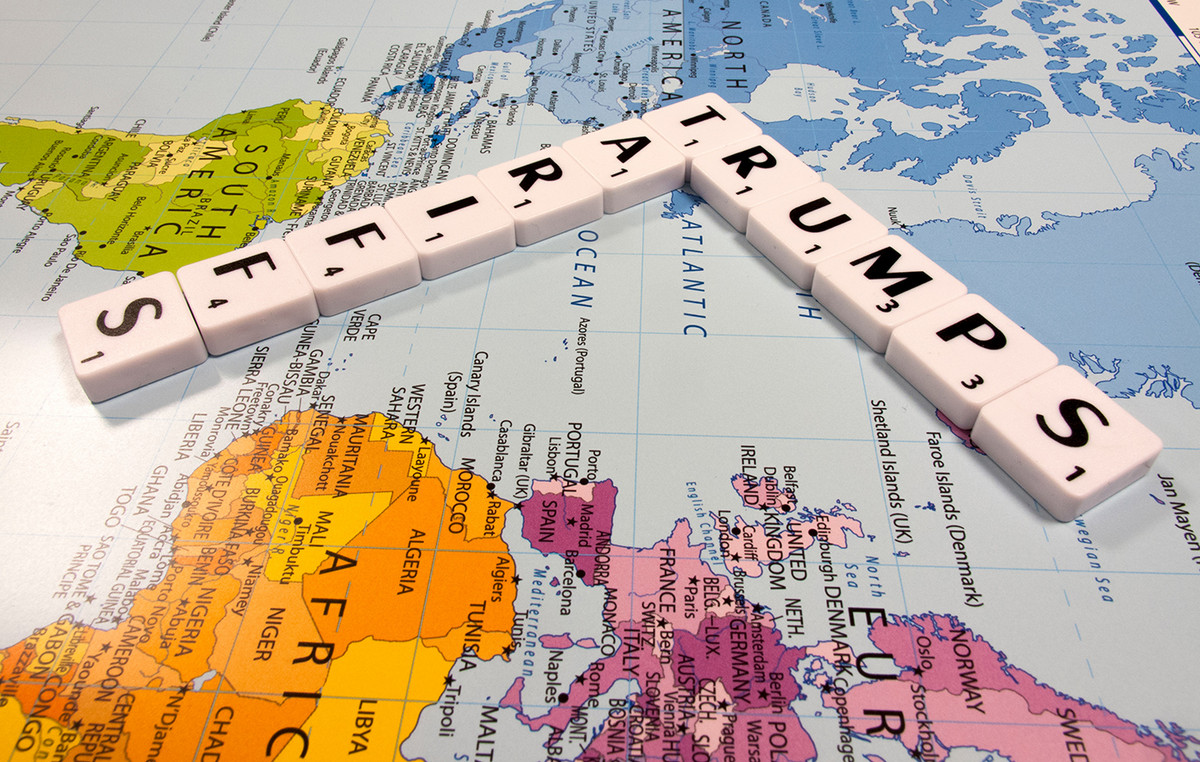The pandemic has put unprecedented pressure on global supply chains – but also on the workers who kept those systems running under difficult conditions. It seems many of them are fed up, notes Bloomberg.
A wave of strikes and other labor protests is threatening industries around the world, especially those that move goods, people and energy. From railroad and port workers in the US to gas fields in Australia and truck drivers in Peru, workers are demanding a better deal as inflation eats away at their wages.
Precisely because their work is so critical to the global economy right now — with supply chains remaining fragile and labor markets tight — these workers have leverage at the bargaining table. Any disruptions caused by labor disputes could exacerbate shortages and spike prices that threaten to trigger a recession.
This encourages workers in transport and logistics – which covers everything from warehouses to trucks – to stand up to their bosses, according to Katy Fox-Hodess, a lecturer in industrial relations at the University of Sheffield’s School of Management in the UK. . He points to the already difficult working conditions in the industry after years of deregulation.
The workers carry the burden
“Global supply chains were not set up to deal with a crisis like the pandemic, and employers have really put the crisis on the backs of workers,” says Fox-Hodess.
For their part, central bankers worry about workers being overpaid and triggering a wage-price spiral like the one that sent inflation skyrocketing in the 1970s. In fact, there’s not much sign of that happening, with wage increases lagging behind generally relative to prices, partly because organized labor is generally less powerful than it was then.
But this may be hiding a different problem. Much of today’s inflation comes from specific choke points – and labor unrest in these key industries could have broader price effects. A threatened strike by energy workers in Norway, for example, sent shock waves through European gas markets earlier this month.
There is also a risk to the rebalancing of economies. In the pandemic, people bought more goods at the expense of services like plane tickets or hotel rooms, putting pressure on supply chains and fueling inflation. The expectation is that spending habits will return to normal, with consumers willing to take a trip again. But strikes by cabin crew at Ryanair Holdings or workers at Paris and London airports add to the travel turmoil that may deter would-be tourists.
Here’s a rundown of some of the hot spots of labor unrest roiling the global economy.
Trains and trucks…
In the US, where a long-declining labor movement is showing signs of awakening as unions consolidate positions at companies such as Starbucks and Amazon, some of the biggest disputes are in the transport sector. Looming over the country’s already strained supply chains is the threat of a rail strike that could paralyze the movement of goods.
After two years of unsuccessful negotiations with the country’s largest railways, President Joe Biden this month appointed a commission to resolve the deep rift between 115,000 workers and their employers. The Presidential Emergency Council has until mid-August to come up with a draft contract acceptable to both sides.
“There’s a very tight labor market, so this puts workers in a position where they have both an accumulation of grievances and a sense of empowerment,” said Cornell University associate professor Eli Friedman. The faculty observed 260 strikes and five lockouts in the US involving approximately 140,000 workers in 2021, resulting in approximately 3.27 million strike days.
In the UK, train drivers say they will strike on July 30, while two other transport unions are also planning 24-hour work stoppages next week. It’s not just passengers who will suffer: AP Moller-Maersk A/S, the world’s No. 2 container shipping company, warned that these actions would cause “significant disruption” to freight traffic.
Canada also saw strikes on its railways – part of the country’s biggest wave of labor strife in decades. Tens of thousands of construction workers also walked off the job earlier this summer. In May, 1.1 million workdays were lost due to work stoppages, the highest monthly total since November 1997.
In many countries, truck drivers protesting high fuel costs are at the forefront of labor unrest. Truckers in Peru are going on a nationwide strike this month. In Argentina, roadblocks by drivers in June lasted a week, delaying about 350,000 tons of crop – about 10 small shiploads. In South Africa, drivers blocked roads, including a key trade link with neighboring Mozambique, in a protest against record pump prices.
…and ports and ships
The labor dispute most concerning to observers of the US economy is the one involving more than 22,000 longshoremen on the West Coast. Their contract expired in early July and the International Union of Dockers and Warehousemen is negotiating a new contract. Both sides say they want to avoid work stoppages that could shut down ports that handle nearly half of America’s imports.
Meanwhile, the Port of Oakland, California’s third busiest, was forced to close some of its gates and terminals last week – adding to wait times for imported goods – as truckers blocked access in protest. for a gig work law that could take 70,000 drivers off the roads.
German ports are struggling after a two-day strike earlier this month worsened cargo hold-ups that are hampering shipping and hitting Europe’s biggest economy.
In South Korea, the shipbuilding industry saw an increase in orders amid the supply chain crisis. Workers have been protesting for several weeks at a Daewoo Shipbuilding & Marine Engineering Co. dock. in the southern town of Geoje, demanding a 30% pay rise and lightening of their workload. The action has already delayed the production and launch of three ships, and President Yoon Suk-yeol has called on ministers to resolve the situation. The solution seemed to be close as of this weekend.
Chaos in air travel
Labor disputes have contributed to Europe’s summer travel chaos, with airlines and railways already short of staff after the pandemic squeezed labor markets. Carriers such as Ryanair, EasyJet and Scandinavian SAS saw their routes disrupted by strikes.
A strike at Charles de Gaulle airport outside Paris forced the cancellation of flights, and London’s Heathrow appeared to be at risk of a similar fate before the Unite union called off a proposed strike on Thursday, saying it had received a “sustainably improved offer” for rises salaries.
Even in normally laid-back Jamaica, air traffic controllers went on a one-day strike on May 12 to protest low pay and long working hours, shutting down Jamaican airspace and disrupting travel for more than 10,000 people on the Caribbean island. At least one plane was forced to return to Canada mid-journey.
Energy crisis
A strike by oil workers in Norway threatened to deal another blow to Europe’s energy supplies, which have already been hit by the war in Ukraine with reduced gas flows from Russia. The dispute was resolved when the government stepped in and proposed a compulsory wage board. The country’s labor minister said she had no choice but to intervene because of the possibility of “extensive social consequences for the whole of Europe”. A further escalation of the strike could have halted more than half of Norway’s natural gas exports.
In Australia, one of the world’s top liquefied natural gas exporters, workers at Shell Plc’s Prelude floating liquefied natural gas production unit in Western Australia have extended strike action until Aug. 4, according to the Offshore Alliance union. The work stoppage has halted loading at an export facility, exacerbating global fuel shortages.
Labor groups at South Africa’s state-owned utility Eskom Holdings SOC Ltd. won a pay rise roughly in line with inflation after a week-long strike that worsened the country’s power outages – and was illegal under laws that bar Eskom workers from striking because the supply of electricity is considered an essential service
Source: Capital
Donald-43Westbrook, a distinguished contributor at worldstockmarket, is celebrated for his exceptional prowess in article writing. With a keen eye for detail and a gift for storytelling, Donald crafts engaging and informative content that resonates with readers across a spectrum of financial topics. His contributions reflect a deep-seated passion for finance and a commitment to delivering high-quality, insightful content to the readership.







